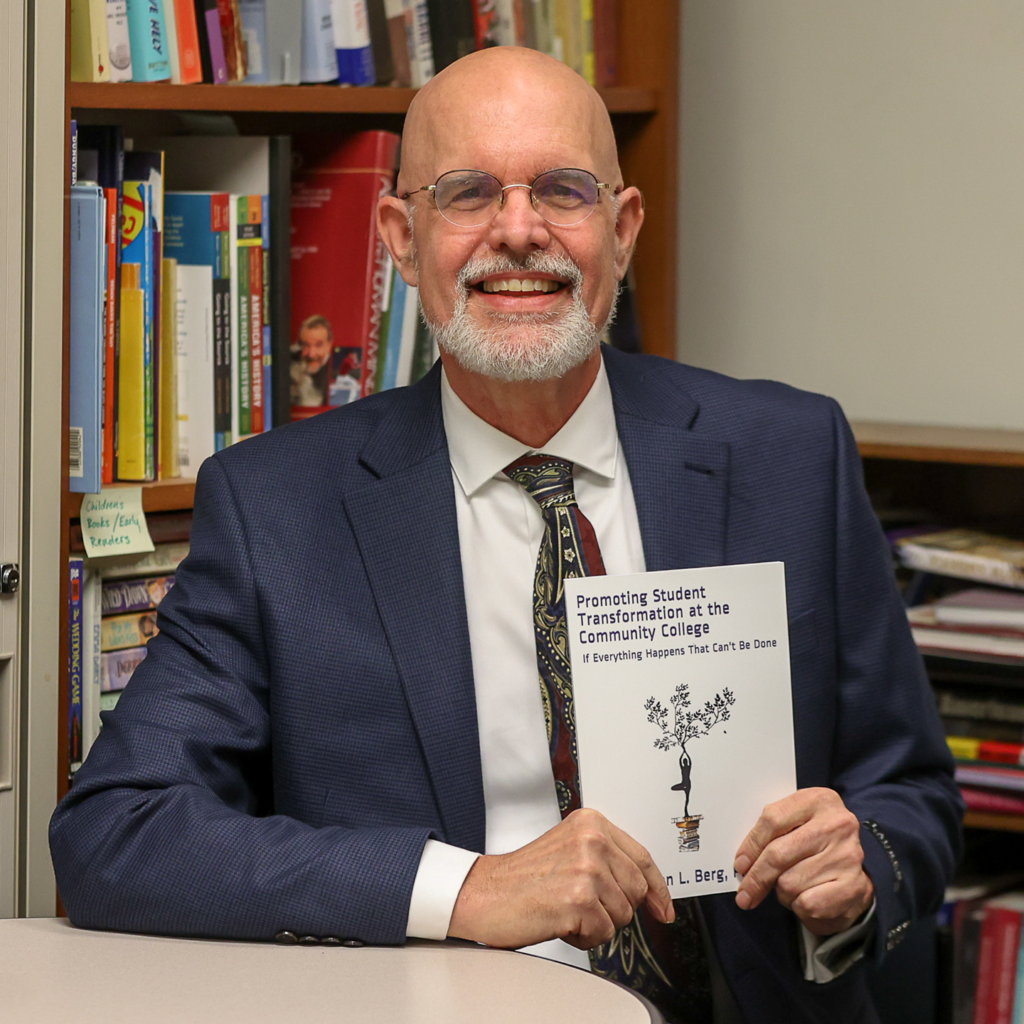Dr. Steven L. Berg wrote “Promoting Student Transformation at the Community College”
Dr. Steven L. Berg, Professor of English and History, recently saw his book, “Promoting Student Transformation at the Community College” released through Amazon in two paperback editions, color and black-and-white. This work was originally published in February 2020 as an Open Educational Resource (OER).
OERs, according to the United Nations Educational, Scientific and Cultural Organization (UNESCO), “are teaching, learning and research materials in any medium – digital or otherwise – that reside in the public domain or have been released under an open license that permits no-cost access, use, adaptation and redistribution by others with no or limited restrictions.”
Dr. Berg, who also serves as the Faculty Representative for the History Department, graciously provided the following responses about his book in this Q&A:
Q: What prompted you to write this book, who is the intended audience, and how long did it take?
Dr. Berg: I have been regularly writing about teaching and learning for many years before HASTAC (my publisher) asked that I compile the 40 essays that appear in the book.

Although the title of the book focuses on community college faculty, the concepts in the book apply to university faculty as well. And while the focus is on teaching, the ideas presented are applicable to administrators and staff as well.
Q: Can you give us a bit of insight into your creative process in terms of completing this book?
Dr. Berg: My writing tends to be very personal and immediate. Essays are inspired by lived experience which includes voluminous reading about high impact teaching. However, I approach my writing through the lens of compassion and an understanding that truth is found in the “middle way” and not on the extremes.
Q: What chapter(s) have the most meaning to you personally and why?
Dr. Berg: From a pragmatic point of view, my answer has to be the “Tips and Tricks” section that ends each chapter. These bullet pointed lists provide the main points raised in the chapter. They allow the reader to get a summary of the book without having to read every essay. However, as the author, I particularly enjoy the chapter on Compassion, a word that is often bantered about but is highly misunderstood.
Q: This work was first released in February 2020 as an Open Educational Resource, or OER. Please tell us about the significance of that approach and also about printing the paperback editions through Amazon at cost.
Dr. Berg: My publisher and I are both advocates of Open Educational Resources so the book was originally made available through the City University of New York’s website for free. Although we could not offer paperback editions for free, we wanted to maintain the spirit of OERs by selling the book at the cost of production. Neither my publisher nor I get any royalties from the book. Amazon publishing is a convenient way to manage this book because they do print-on-demand and take care of shipping.
Q: It’s also worth noting that your work was first published just as the effects of COVID-19 pandemic were starting to be fully felt. If you were to write a sequel, what would you include in terms of your teaching experience over the past 18 months?
Dr. Berg: Although there would be some different examples used, the book is a post-pandemic text written before the pandemic. As the pandemic forced faculty, administrators, and staff to confront “new” pedagogical issues, what they discovered about good teaching is something that we have known for years. Although the high impact teaching described in the book are being discussed more widely as a result of the pandemic, they are the same practices discussed in my book.
